The Power of Family Support in Recovery: Loved Ones Matter
September 11, 2025 •Tara Treatment Center l Franklin, Indiana

Addiction recovery is a journey that rarely happens alone. While the individual battling substance use disorder must take the brave steps toward sobriety, their family plays a crucial role in shaping the outcome. When families provide consistent support, education, and encouragement, their loved ones’ chances of lasting recovery grow significantly stronger.
At Tara Treatment Center in Franklin, Indiana, we’ve witnessed the healing power of family support firsthand. By bringing families into the recovery process, we help both individuals and their loved ones learn, heal, and rebuild trust together.
Why Family Support Matters in Recovery
Addiction affects the entire family unit, not just the person struggling with substance use. Spouses, children, and parents often face emotional stress, financial strain, and broken trust. But research shows that recovery outcomes improve when families stay engaged:
- A 2024 review found that individuals with active family involvement are up to 40% more likely to maintain long-term sobriety.
- Family participation reduces relapse risk by creating accountability, emotional stability, and healthier routines at home.
This is why Tara Treatment Center prioritizes family involvement at every stage of treatment.
Education and Awareness: Building Understanding
Families often feel powerless in the face of addiction, but education changes everything. By learning about the disease of addiction, its causes, brain chemistry, and challenges, family members can respond with empathy rather than judgment. This shift helps loved ones become allies instead of critics.
At Tara, we offer family education programs that provide insight into addiction and recovery, empowering families to participate actively in healing. For more guidance, see our article on How to Support Addiction Recovery.
Creating a Supportive Environment
A supportive home environment can make all the difference for someone in recovery. Families who foster safety, stability, and encouragement help reduce stress and prevent triggers. This doesn’t mean ignoring challenges, it means providing compassion while holding firm boundaries.
Our Positive Family Support article explores how families can strengthen connections and encourage lasting change.
Open Communication and Trust
Recovery is built on trust, and trust grows through honest, judgment-free conversations. Families should:
- Practice active listening without criticism.
- Encourage their loved one to share feelings and struggles.
- Use empathy instead of blame when discussing challenges.
Tara’s family therapy sessions provide a safe space for these conversations, guided by trained counselors who help rebuild communication and resolve underlying conflicts.
Family Therapy and Counseling
Family therapy is one of the most effective tools in addiction recovery. Research shows that family counseling reduces relapse rates and strengthens emotional resilience for everyone involved. By addressing dysfunction, processing emotions, and improving relationships, families create a healthier environment that supports sobriety.
At Tara, our Family Help Program includes therapy, psycho-educational workshops, and ongoing support so families can heal alongside their loved one.
Boundaries vs. Enabling
Supporting a loved one doesn’t mean shielding them from consequences. In fact, enabling can make recovery harder by protecting the individual from the natural outcomes of their behavior. Families must learn to:
- Set healthy boundaries.
- Avoid covering up or making excuses for destructive behavior.
- Support recovery efforts without controlling or rescuing.
Our article on Stop Enabling Behaviors offers practical strategies for families learning this balance.
Healthy Activities and Shared Milestones
Recovery is about more than abstaining from substances—it’s about rebuilding life. Families can strengthen bonds and encourage healthy living by:
- Exercising together or enjoying outdoor activities.
- Exploring creative outlets such as art or music.
- Attending community or faith-based events together.
Celebrating milestones; such as one week sober, completing a therapy program, or returning to work, reinforces progress and builds confidence. At Tara, we encourage families to mark these victories, big or small.
Patience and Long-Term Healing
Recovery is rarely a straight line. Setbacks can and do happen. For families, this means practicing patience, compassion, and perspective. What matters most is ongoing support and the belief that healing is possible.
As we share in our article on Hope After Recovery, recovery is not defined by setbacks but by the commitment to keep moving forward.
Conclusion: A Family Journey Toward Healing
Family support in recovery is more than encouragement—it’s an active, ongoing commitment to healing together. By educating themselves, fostering open communication, setting boundaries, and engaging in therapy, families can become a powerful force for lasting recovery.
At Tara Treatment Center, we believe that healing is possible for both the individual and the family unit. That’s why we continue to strengthen our Family Help Program, offering counseling, education, and support for loved ones. We also recommend resources like Al-Anon for families seeking additional community support.
Recovery may be challenging, but with patience, understanding, and family involvement, the path forward becomes clearer and brighter.
Get Help Today. Together, your family can heal.
GET HELP